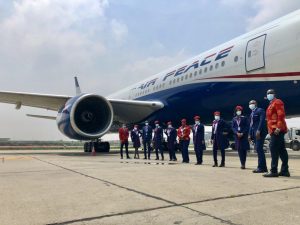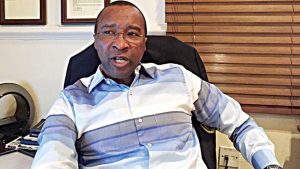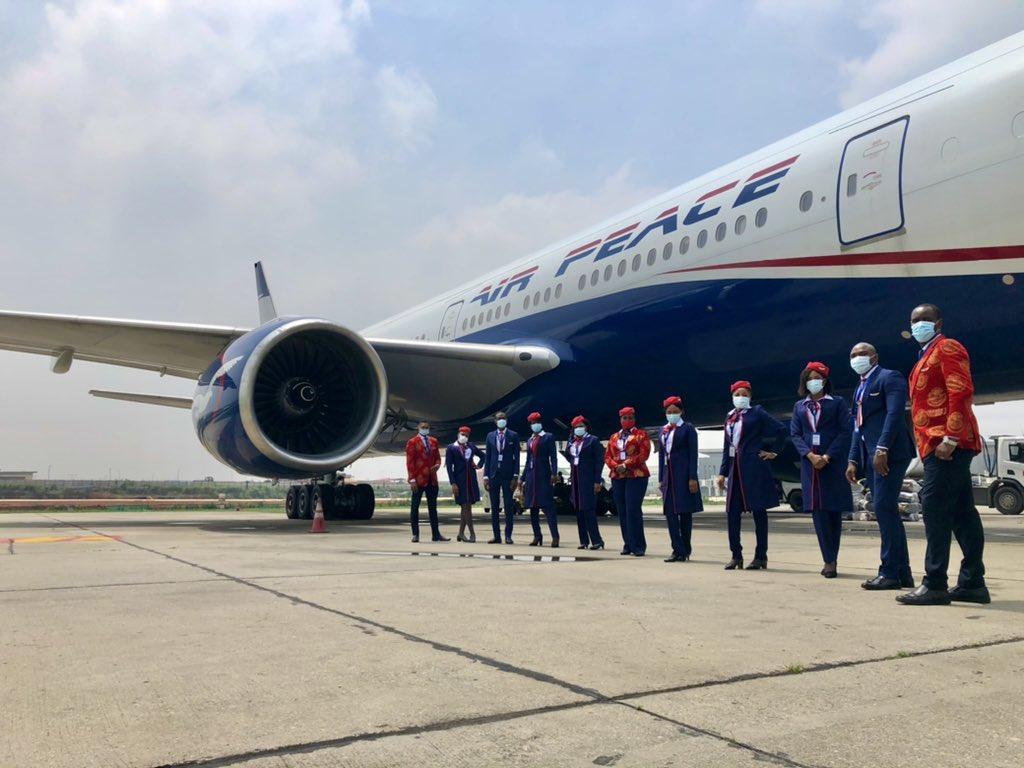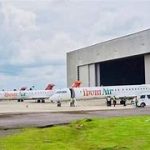
Despite the huge resources invested in airline business, airport development and airspace management, the aviation industry has witnessed stunted growth over the years, a development industry experts contended, lives much to be desired.
The experts attributed the snail pace growth of the aviation industry to many factors, which include poor return on investment, lope-sided competition and poor credit structure.
The President of Top Brass Aviation Limited and a member of the Airline Operators of Nigeria (AON), Roland Iyayi, said the aviation industry was not structured for growth despite the fact that airline business is capital intensive where millions of dollars were used to purchase a single aircraft while the government spends so much in acquiring weather equipment, landing aids and other safety critical infrastructure.
“The aviation industry we have is not structured for growth, and the reason I say this is very simple. When the industry was deregulated in 1982, a deregulation was intended to allow for more people to travel. But Nigerian Airways was not prepared because Nigerian Airways then operated only huge capacity aircraft because of size of the market, which they had a monopoly over. What we have today are airlines that have evolved from the same point that Nigerian Airways operated,” Iyayi said.
According to him, government policies and aviation regulations made investment in the industry very expensive, yet there is poor return on investment, “and that explains why airlines in Nigeria have short lifespan because they are usually smothered by huge expenses.”
Iyayi gave example with the Air Operator Certification (AOC) policy where the Nigerian Civil Aviation Authority (NCAA) keeps an airline on ground until it obtains the certification before it would be allowed to start operations.
“The airline cannot be expected to be profitable, when sitting on ground, waiting for an AOC for 18 months. The airline is not earning income but it is required to pay the salaries of it staffs for 18 months while the CAA (NCAA) is busy trying to process the AOC. That does not make sense. I will talk about profitability. These are all bottlenecks that try to strangulate the airlines. The NCAA is not police and I am very happy that the Director General has talked about the NCAA not being a police of the industry. The NCAA’s role is to push for industry development and safety oversight. The NCAA cannot focus entirely on its own side of the deal without looking at how to develop the industry. And those policies that are spewed out of the NCAA must be seen to be friendly for the growth of the industry. So far, all the policies that are coming out of that agency, negate growth,” he said.
Reacting to the new NCAA policy that an airline would have minimum of six airplanes to register for schedule commercial operation, Iyayi said that the cost of an airline developing a route is very expensive; “so, an airline will only grow if it takes its growth plan by piecemeal.
“But unfortunately, when you say to me that I need six airplanes, and I only want to be going to Uyo from Lagos, what do I do with the additional aircraft that I have in my fleet? So I think it is important that the NCAA review those policies that are detrimental to the growth of the industry as a first step. Again, in terms of growth we need to have, from the airline side, we need to take care of the complaints of the consumers. We listen to you because we know that the complaints are credible. However, when you look at the problems that airlines face, most of these issues are out of the hands of the airlines. The delays you see most times are actually from the airport company.”
“And why do I say that? I will give you a very simple example. The first flight out of Lagos every morning, most times will go on time. The second flight of most airlines, will incur a 30 to 40 minutes delay. And why is that? The very first flight in the morning is 6:30 and 7 o’clock. There is absolutely no need for any delay because people are coming fresh in the day and everything is working. But the second flight, at this point you are talking about maybe three to four airlines going at the same time. The facilitation point for passengers, the screen point for instance in the GAT (General Aviation Terminal), is only one. When you have one facilitation point, it is almost impossible to facilitate four Boeing 737 flights, about 600 passengers within a 30 minutes window for that flight to leave on time,” Iyayi further said.
Speaking in similar vein, the Director-General of the Nigerian Safety Investigation Board (NSIB), Akin Olateru, said funding of airlines remained very important, insisting that it is when the airlines are well funded that they could begin to be profitable.

“For airlines to be profitable, to me funding is major. This is one of the only countries in the world where access to funding is extremely difficult. We need to do something about that because you cannot talk about growth without affordable fund. If it is buying an aircraft, brand new aircraft, 100 million dollars, you have the manufacturers, the EXIM banks of those countries, willing to fund up to 85 per cent. There you pay 15 per cent and they fund the rest, but the issue is in getting a local bank guarantee of $85 million.
“You approach our banks in Nigeria for guarantee of 85 million dollars, they ask you to put in $85million cash in your account then they give you guarantee. I mean; it is crazy for the kind of things they ask for. It is just a guarantee. Yes, I understand it can crystallize but you still have the aircraft asset. So, they don’t discount that; that this an asset that the airline is buying and this asset is worth something. So I think the Ministry of Aviation needs to probably call all stakeholders to hold a discussion on funding. Invite all the financial institutions in Nigeria, we need to rejig this funding issue, it is critical to the growth of the industry,” Olateru said.
THISDAY






